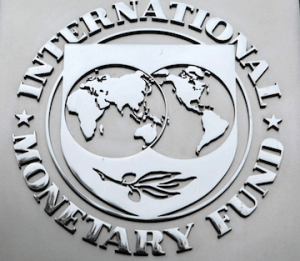Increase in electricity tariffs new reality for Ghana – IMF
 Mr Joël Touhas-Bernaté, International Monetary Fund (IMF) Mission Chief for Ghana, says the increase in electricity tariffs reflected a “new reality for Ghana”.
Mr Joël Touhas-Bernaté, International Monetary Fund (IMF) Mission Chief for Ghana, says the increase in electricity tariffs reflected a “new reality for Ghana”.
He also said Ghana’s growth is expected to rebound in 2016, after the slowdown of about four per cent in the last three quarters.
He said the projected growth is expected to be pushed by reforms in the energy sector as well as the coming on stream of new oil production in the second half of 2016.
Speaking to journalists in Accra via video link from Washington, Mr Touhas-Bernaté said although the decline in global oil prices would have an impact on export revenue, plans to bring on board oil from the Sankofa and TEN fields are still on course. The projection also involves a pickup in non-oil growth.
He noted that there had also been some improvements in the operations of public companies, especially in the energy sector, as well as increase in taxes and levies in the sector, a move which was part of a more comprehensive programme to enhance operations and the financial situation of these companies.
“This is very important for the sector, to improve delivery of electricity, and to complement efforts of authorities to bring in new power producers to reduce shortages,” he said, adding “This will be an important element in the pickup in economic growth that is expected this year.”
Touching on the increases in electricity tariffs and the challenges to Ghanaians, Mr Touhas-Bernaté said while steps have been taken to improve electricity supply by bringing in new producers, the increase in tariffs reflected a “new reality for Ghana”.
Whereas in the past Ghana relied extensively on hydropower which was a cheap source but not as efficient, Ghana now has to rely on a mix of energy sources, including more expensive sources like thermal and gas production. Thus the increases in electricity tariffs reflected this new reality.
“We recognise that this represents an additional cost for households and businesses, but this is a condition for maintaining the sector to be viable and able to deliver the electricity needed for the entire economy,” he said.
The just ended second review of Ghana Extended Credit Facility, according to the IMF, had been largely satisfactory so far, leading to the disbursement of about $114.6 million in the last few days.
Mr Touhas-Bernaté however noted that there have been delays in implementing certain parts of the structural reforms, which may set the programme back a few months in the medium term.
He maintained that the fiscal consolidation efforts as well as the objectives for 2015 of a fiscal adjustment of about three percent of GDP, are on track, and progress on structural reforms had also been widely satisfactory.
He said the delays were in the preparation of public financial management laws which were expected to be completed by end of 2015 due to public consultations taking more time.
It is expected to be implemented by April or May 2016. Also, work on reducing tax exemptions also delayed though work is ongoing.
These delays informed calls during discussions with the authorities, to accelerate structural reforms to support fiscal consolidation and fiscal discipline for the medium term.
He said: “There’s still a way to go before things are restored to a more sustainable path; the global environment with declining commodity prices and tightening in international markets leading to higher borrowing costs, have become less supportive and will make these efforts so much more difficult going forward.”
Source: GNA
